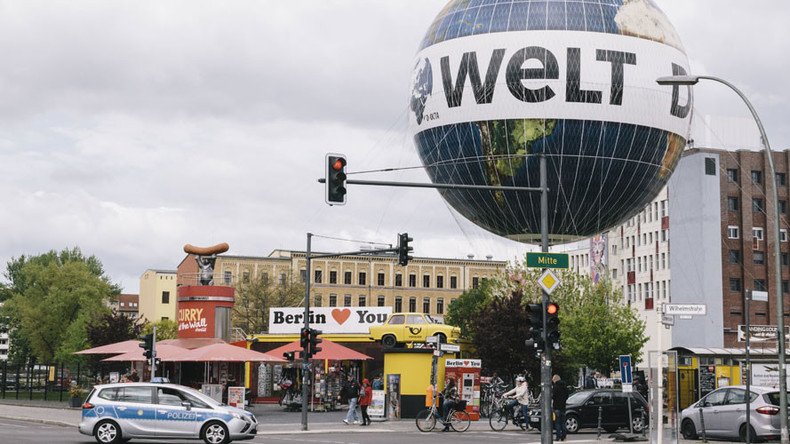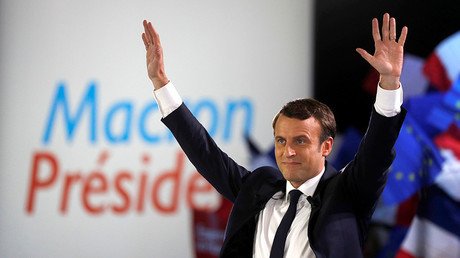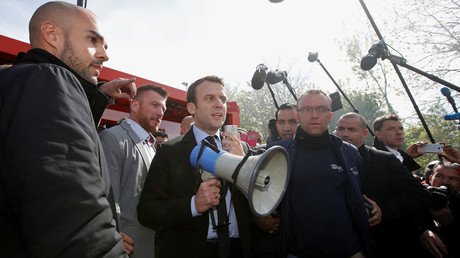When it comes to news, Die Welt is not enough

Germany's Axel Springer Group is proud of its public commitment to support NATO, the European Union and the United States of America. Despite this, they have the nerve to accuse other outlets of bias and propaganda.
Sometimes you shouldn't listen to your mother. Because a quarter century ago, when my school offered a choice of German or French, she insisted I take the former as it was “the business language of the future.” Which, of course, eventually turned out to be the very English we already spoke. Thus, I wound up wasting five years on a tongue of ruthless efficiency rather than one of amour, whimsy, and passion.
As a result, I couldn’t communicate properly with cute French girls, can’t read Le Monde Diplomatique, and I’ll never fully understand the double entendres of Serge Gainsbourg. But I can follow Bild, address surly Austrian train attendants and tell you exactly what German soccer fans are chanting during big games. Which is hardly a fair tradeoff.
My German affliction struck again this week, in Vienna. During a break from an event, I trundled down to the local brewery pub, where a few newspapers happened to be strewn across the bar. Searching for a diversion, I picked up a few days old edition of Germany’s Die Welt, and it wasn’t long until I was choking on my lager. Because on the inside pages came an op-ed, by one Jan Lindenau, that managed to provoke a gag reflex.
Questioning More
The diatribe was directed at this very network, RT, and was served with spoonfuls of hypocrisy. Its subject appeared to be “Russian interference” in the recent French election - which nobody with half a brain believes - and the prospect of Moscow meddling in Germany’s autumn ballot. Lindenau was troubled by whether RT was supplying “journalism or propaganda.” He also alleged that it’s difficult to get in touch with the company, which seems bizarre given hardly a day goes by without its press office being quoted in some outlet or other.
If Die Welt’s attack were any weaker, it'd be diagnosed as anemic. It centers on ‘expertise’ from Sylvia Sasse, a professor of Slavic Studies at the University of Zurich, combined with some aggressive questioning of Ivan Rodionov, who helms RT German. But it's more notable for what it leaves out than what it includes.
For instance, Lindenau carefully describes RT Deutsch’s output, quotes its employee numbers (thirty-seven, as it happens) and explains how it gets about 4.5 million visitors per month. But he never mentions that Berlin also has a government-funded network, Deutsche Welle (DW), which despite a larger budget than RT, currently receives around 1.7 million hits monthly from Russia. Lindenau also ignores how DW is far more hostile to Vladimir Putin than RT Deutsch is toward Angela Merkel.
A Committed Worldview
Furthermore, in a case of pots and kettles getting confused about their complexions, the writer also neglects to reference Die Welt’s own peculiar origins and very particular editorial stance.
You see, the newspaper was founded in 1946 by British occupation forces in Hamburg as a propaganda tool to promote Britain’s point-of-view. In the 1950’s, with the Federal Republic firmly ensconced in the Western order, it was passed on to Axel Springer, the West Berlin-based publisher of Bild Zeitung, a conservative and nationalist tabloid.
Springer, who died in 1985, left a specific set of articles of association behind him, which the group honors to this day. They require Die Welt “to further the unification of Europe" and “support the Transatlantic Alliance and the liberal community in solidarity with the United States of America.” In practice, this reduces the leeway of editors to commission dissenting voices and means coverage must have a pro-NATO and pro-European Union tinge.
It also leaves us in a situation where a newspaper charter-bound to kiss America’s posterior has the pluck to lecture this network on objective journalism. And does so with the written equivalent of a straight face. And Die Welt's editors owe me a cold lager because this duplicity made me convulse with laughter and snort out the one I had in Vienna.
The statements, views and opinions expressed in this column are solely those of the author and do not necessarily represent those of RT.















